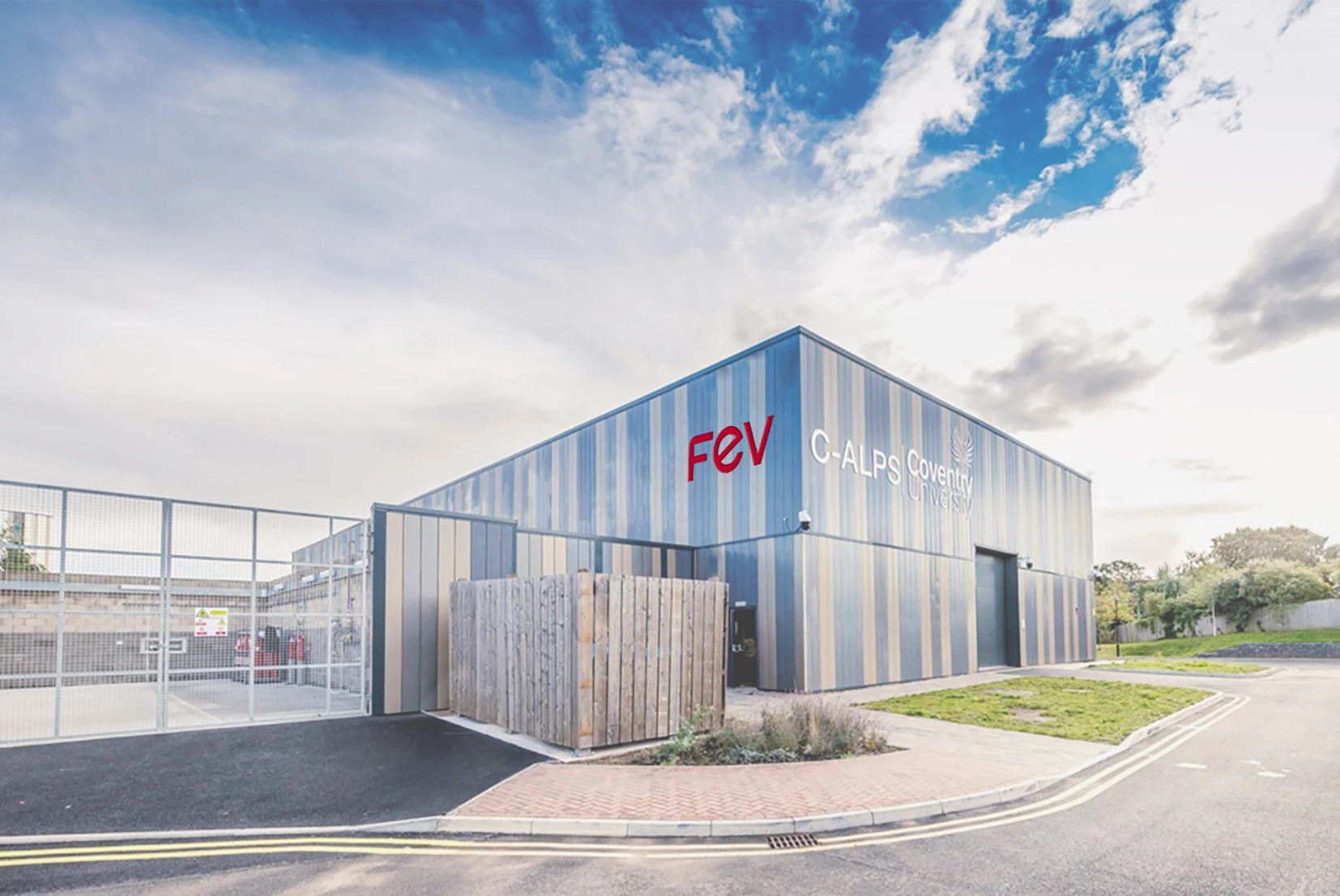
Electrification tipping point challenge awaits UK industry, predicts Coventry University expert
UK industry is facing a major tipping point when it comes to the electrification race according to one of the sector’s leading figures.
Carl Perrin, CEO of the Institute for Clean Growth and Future Mobility at Coventry University, believes Tata Group’s decision to invest £4bn in a new electric car battery factory in the South West is a welcome boost, but needs to be the starting block when it comes to accelerating supply chain capacity.
The former Rolls-Royce Head of Technology is adamant that we need sustained investment in ensuring domestic firms can commercialise the emerging technologies they are developing, not to mention supporting SMEs to make the skills transition to electrification roles.
It is a train of thought that will be at the forefront of discussions this week when Cenex-LCV and Cenex-CAM gets underway at UTAC Millbrook (6th-7th September).
“The UK is doing so well in developing some of the early technologies that will be supporting the EV race, but we face a real tipping point,” pointed out Carl Perrin, who is a Chartered Engineer and a Fellow of the Institute of Materials, Minerals and Mining.
“There’s an ambitious Government target to end the sale of new petrol and diesel cars by 2030 and, with this date rapidly approaching, we must accelerate our domestic EV production base and associated supply chains. If we don’t then we will increasingly be reliant on imports, and we can’t let this happen.”
He continued: “We need to look at where we are going to need capacity and, importantly, the skills that are going to support these factories. There’s a lot of work being done in transitioning existing workers into the new roles and ensuring SMEs are supported to come on the journey with us.”
Coventry University’s Institute for Clean Growth and Mobility is managing one of the largest portfolios of projects in clean mobility in the UK, thanks mainly to its ability to understand policy and then align research and technologies to deliver solutions to societal challenges.
A lot of these programmes will be showcased at Cenex-LCV with the University showcasing the expertise and activities of its three main Research Centres - E-Mobility and Clean Growth, Manufacturing and Materials and Future Transport and Cities.
Those names may not mean a lot to people in industry until you realise they house pioneering initiatives such as the Institute for Advanced Manufacturing & Engineering (AME), the National Transport Design Centre (NTDC), the Centre for Advanced Low Carbon Propulsion Systems (C-ALPS) and the Centre for Connected and Autonomous Automotive Research (CCAAR).
“A lot of focus has been on eliminating tailpipe emissions, and you could be forgiven for thinking that’s enough to meet Net Zero targets,” added Carl.
“There must be a wider, holistic approach. As well as driving our cars around, we need to consider emissions from manufacturing processes, supply chains and what happens to vehicles at end-of-life, so we can build a sustainable and full circular economy solution for future vehicles.
“Skills must be a key focus. How do you train your staff if you don’t know what the 250,000 new Green Economy jobs predicted by the Government will look like? It’s a difficult task and there’s a massive piece of work to do around mapping out what these roles look like and what those skills are for businesses getting started on their own Net Zero journey.”
One example where Coventry University has made an impact is the launch of the Electric Revolution Skills (ERS) Hub, which will also be showcased at Cenex-LCV.
More than 200 delegates were at the launch in March to hear how this new integrated digital platform will provide access to training, development and jobs for people looking to get into, or who are currently involved in power electronics, machines and drives (PEMD).
The ERS Hub is an important new weapon in the sector’s arsenal and will help firms understand what skills are needed through a Body of Knowledge and a cutting-edge skills diagnostic tool.
Carl concluded: “It’s quite simple. UK industry must collaborate more to move the dial so that the tipping point for Net Zero goes firmly in the right direction.”
For further information, please visit www.coventry.ac.uk/research/about-us/transport-solutions/. Coventry University will be on Stand C3-302 at Cenex-LCV.
Looking to promote your product/service to SME businesses in your region? Find out how Bdaily can help →
Enjoy the read? Get Bdaily delivered.
Sign up to receive our popular morning National email for free.








 Raising the bar to boost North East growth
Raising the bar to boost North East growth
 Navigating the messy middle of business growth
Navigating the messy middle of business growth
 We must make it easier to hire young people
We must make it easier to hire young people
 Why community-based care is key to NHS' future
Why community-based care is key to NHS' future
 Culture, confidence and creativity in the North East
Culture, confidence and creativity in the North East
 Putting in the groundwork to boost skills
Putting in the groundwork to boost skills
 £100,000 milestone drives forward STEM work
£100,000 milestone drives forward STEM work
 Restoring confidence for the economic road ahead
Restoring confidence for the economic road ahead
 Ready to scale? Buy-and-build offers opportunity
Ready to scale? Buy-and-build offers opportunity
 When will our regional economy grow?
When will our regional economy grow?
 Creating a thriving North East construction sector
Creating a thriving North East construction sector
 Why investors are still backing the North East
Why investors are still backing the North East